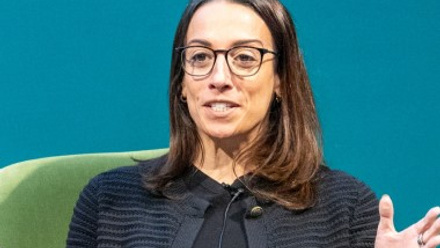What does best mean in healthcare? Filmmaker Suzanne Garber gives her view

Filmmaker, author and two-time cancer survivor Suzanne Garber does. “People don’t think about it enough,” says Garber, a world traveller who has experienced different countries’ healthcare systems. “We spend more time reviewing which restaurant to eat in than which doctor or hospital to use. One is a potentially life-changing decision. And one is lunch. It’s crazy.”
Garber serves on the boards of several for-profit and humanitarian organisations. As part of her work she speaks at international conferences on a variety of topics, including medical and security networks and globalisation.
Her first documentary film, GAUZE: Unravelling Global Healthcare, draws on her experiences of being a cancer survivor, holding dual nationality and living in eight of the 101 countries she has visited. In the film, she compares healthcare around the world by visiting 174 hospitals and talking to 65 international healthcare experts in 24 countries.
We sat down for a one-on-one conversation with her to find out her take on what is ‘best’ in healthcare. We also explored the effect of regional differences on people’s perception of what’s considered ‘the best healthcare’ and their ability to access it.
What is ‘best’ when it comes to healthcare?
Healthcare can be judged on three criteria:
- Quality
- Accessibility (including affordability)
- Transparency (pricing and outcomes)
The best healthcare will score highly in all these areas. I see it like a three-legged stool; if one leg is missing, the whole thing falls down.
The best healthcare is also holistic, with a wraparound view of lifestyle issues, nutrition, mental health, exercise and a whole range of other factors. This is more prevalent in the Far East, where they see the whole person instead of just a set of symptoms. In US medical schools, aspiring physicians are taught to look for symptoms to define diseases rather than looking at the individual holistically with every symptom combined.
What are some challenges in defining ‘the best’?
We talk about ‘the best’ in everything: the best holiday, the best cup of coffee, the best night’s sleep. But we don’t do that with healthcare. You never hear anyone say, ‘I have the best primary healthcare physician’ or ‘I had the best colonoscopy’. We define everything in our life — what we wear, what we eat, our hairstyle — except health care. Is it because we don’t know how to define it? Is it because we allow other people to define it for us? And if that’s the case, why?
With healthcare, many people accept whatever the norm is in that country. You don’t see a lot of grassroots movements in healthcare as you do with civil rights. Which brings up the question: is healthcare a civil right? And especially seeing as this is something that can be a matter of life and death, how come we don’t take it more seriously, more personally, and demand better? We should determine what ‘best’ means to us, but we need to be educated to do that.
Are there regional differences when it comes to the perception of what ‘the best health care’ is?
It depends on whom you ask. People’s expectations vary from place to place. For example, in India, healthcare quality is questionable, but access is relatively good.
People’s expectations also vary within countries. Those who live in urban areas expect to be seen quickly because facilities and clinicians are close. Those in rural areas expect to have to travel or wait, so their ideas of what is ‘good’ is different.
People are accustomed to their own environment and societal set up. And so they base ‘best’ on their own experience. I know many people who complain in the UK about waiting lists of up to 12 weeks to see specialists, but the quality of that care is very good.
What is the global impact of disparities in healthcare provision?
One impact is the rise of health tourism — people travelling for healthcare because they are lacking one of the three primary tenets of healthcarein their own country. The definition of ‘medical tourism’ is murky; it can be very narrow or very broad, and we lack concrete numbers. Is it medical tourism when people cross a border for teeth whitening or plastic surgery? Or when they travel for in-vitro fertilisation?
In some places, there’s great healthcare and accessibility, but it’s just too expensive. That’s the number-one reason Americans travel for healthcare. In other places such as some underdeveloped countries, there’s a lack of confidence in local healthcare. It’s there, and it’s affordable, but citizens don’t trust the quality. Those who have the money often travel to places like UAE, South East Asia and Europe to access quality not present at home.
Some countries catalogue when people enter the country for medical reasons, while others don’t. If governments mandated ‘medical’ as a reason for entering a country, it would help to clarify how many people are visiting for medical reasons — and then we could more accurately calculate the economic impact.
Part of your job has been to vet the credentials of hospitals around the world. In your expert opinion, where can ‘the best’ healthcare be found?
Nowhere is perfect. I’ve been to 101 countries, and there’s no one place that offers perfection in all three areas: transparency, accessibility and quality.
Singapore is good, but they do lack some transparency around outcomes. France has an exceptional system, as does the UK. There are issues around waiting times, but compared to other countries it’s not that bad. And India has decent accessibility, but the quality is lacking in some places. If you have money, you can always access quality — but that means there are disparities.
In 2017, the New York Times created a ‘tournament’ to judge which of the following eight nations — Canada, U.K., Singapore, Australia, Switzerland, France, Germany or the U.S. — were considered to have ‘the best healthcare system in the world’. Switzerland came out on top, with France in second. The two systems are very different from each other, but they both offer accessibility, quality, affordability and transparency.
Switzerland has a private-pay system mandated through government taxes. You must get healthcareand can do that through an exchange where you can purchase it. Everyone has to pay for it, and there are more choices. In France, there is minimal choice. It’s a single-payer system for the majority, with a small number of people purchasing private insurance.
How are technologies such as wearable tech and virtual health changing what constitutes ‘best’ in healthcare? What changes to healthcare can we expect in the next 10 years?
Wearables and electronic medicine are on the rise, and telehealth is huge! Access to information will play a role in driving younger generations to engage with their health earlier. People want to take care of their health over the long term, and tech is playing a key role in educating them.
There will be fewer people going to actual doctors. While this will cut costs for providers, we will lose some of that doctor/patient relationship…but that’s just a sign of the times. Millennials still form relationships; they just do it in a different way. While some generations may prefer face-to-face appointments, younger people prefer to do things online. The key challenge is to provide remote access to quality care while retaining a holistic view of individual circumstances.
Knowledge is power and can lead to greater engagement, increased personal accountability and the ability to take positive steps. That said, privacy issues are a challenge.
This article was provided by Aetna International.
In partnership with Aetna
Aetna is re-shaping and improving health care across the globe by developing solutions.






